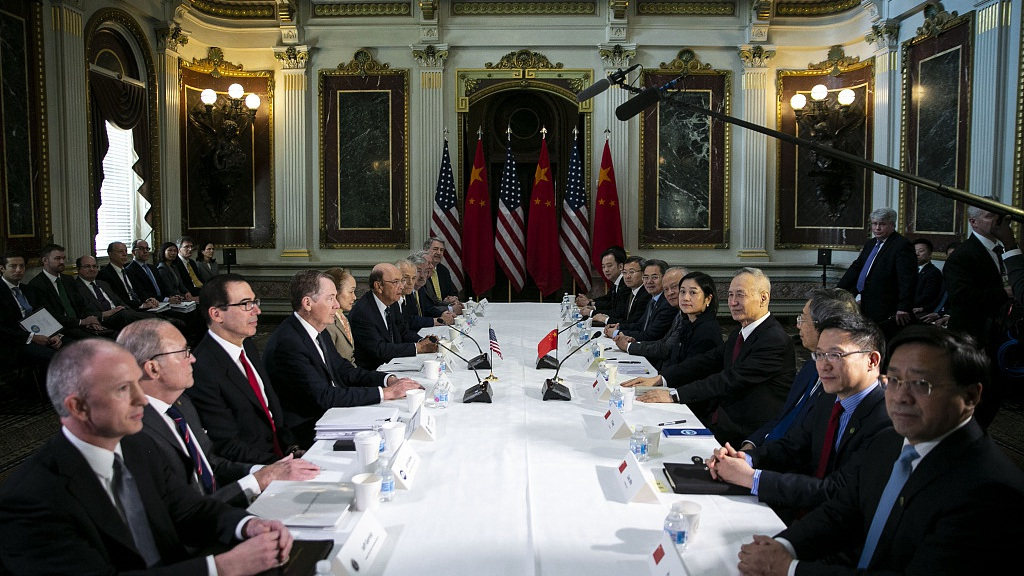
TV Show
23:08, 09-May-2019
Win-win approach pivotal in China-U.S. trade talks
Updated
08:15, 10-May-2019
World Insight with Tian Wei
05:28

It's been over a year since the trade war between China and the U.S. started. Why has it lasted for such a long time?
"The [Donald] Trump administration is far more interested in scoring kind of hot button points with its domestic audience than it has been focused on embracing a language of cooperation and collaboration." Max Wolff, Managing Partner at Multivariate and also a professor at the New School University, told CGTN.
"You can't ask anyone to come to the table if the price of sitting down together is a rhetorical humiliation or accusation, because that very, very rarely breezes collaboration, creativity and both give and take that result in enduring and beneficial deals," Wolff added.
Moreover, Trump has been adept at using negotiation tactics. "In negotiation, we normally talk about where is the bargaining zone, meaning what is the bottom line on each side, it seems that the U.S. side is really pushing further of the bargaining zone onto the Chinese side," Liu Baocheng, dean of the Center for International Business Ethics at the University of International Business and Economics, said, adding that this is "a tactic rather than strategy."
In business class, the relationship approach is more advocated than the transactional approach. The latter can be regarded as the synonym of zero-sum mentality where only one party wins. China has been sticking to the win-win approach, which takes all stakeholders' interests into consideration.
The whole world is now watching the interactions between the world's largest two economies and the outcomes of the trade talks. Trump is known to the world for his capriciousness. Is there a textbook solution to this?
"There is certainly no textbook solution," Daniel Gros, the director of the center for European Policy Studies, responded. Gros added that if one party wants to have bilateral agreements but walks away from that, it would win a reputation of inconsistency, which will discourage other parties from staying at the negotiating table.
Gros continued that Trump's capriciousness can unite other players. "That's why Japan, the EU and other trading powers [are] inclined to keep their relations with China intact," Gros said.
(If you want to contribute and have specific expertise, please contact us at opinions@cgtn.com.)

SITEMAP
Copyright © 2018 CGTN. Beijing ICP prepared NO.16065310-3
Copyright © 2018 CGTN. Beijing ICP prepared NO.16065310-3